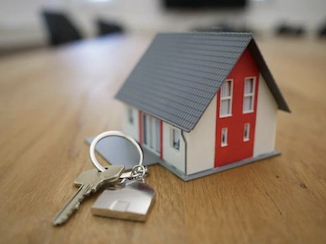Important Considerations to Make When Searching for Your First Home
Jun 06, 2022 00:42
To call your first home a milestone purchase would be an understatement. In addition to representing your evolution from renter to homeowner, buying your first home serves as one of the foremost indicators of adulthood and independence.
Given how important this purchase is, it stands to reason that you’d want to put as much thought into it as possible. So, if you’re currently on the hunt for your first home, take care to consider the following factors.

The Location of the Property
There’s a reason so many real estate professionals emphasize location above all else – homes found in the most desirable locales tend to fetch the highest prices. Conversely, homes found in areas with weak local economies, high crime rates and bad schools are generally unable to command the same types of prices.
However, there are a number of other reasons for homebuyers to take the location of a prospective residence into careful consideration. For example, if a home you’re looking at is located a considerable distance from your place of business, this can pave the way for a lengthy and cumbersome commute. Additionally, if a home is located in an area that’s far removed from grocery stores, restaurants, retail establishments and other centers of commerce, this can create a wide range of inconveniences. Lastly, if a home is found in an area with skyrocketing crime rates, you should take some time to consider whether you’d truly feel safe living there.
So, before getting started on any paperwork, conduct some research on the location of the home. Depending on what you discover, you may ultimately elect to set your sights on other properties. North Carolinian homebuyers would do well to research locales when exploring Charlotte real estate.
The Condition of the Property
Getting stuck with a lemon of a house is the absolute last thing any homebuyer wants. Discovering major issues with a home well after the deal has gone through can leave you frustrated and financially drained. While you should never purchase a home that you haven’t done a personal walkthrough of, yours isn’t the only set of eyes that should be inspecting the property.
This is where a certified home inspector can come in handy. A seasoned home inspector will be able to recognize an extensive assortment of problems that range from “very obvious” to “practically invisible.” If there are any issues with a home’s plumbing, structure or electricity, a formal inspection should be able to bring them to the surface.
So, regardless of how pristine a home appears to be, you should never move forward with the purchasing process in the absence of a detailed inspection. A certified inspector may even discover problems of which the seller was hitherto unaware, thus strengthening your bargaining power. Furthermore, if a seller vehemently refuses to allow an inspection, this is a solid indication that you should walk away from the deal. Even if they’re not actively trying to conceal problems with the property, such behavior should always be regarded as a red flag.

Monthly Mortgage Payments
No matter how eager you are to purchase your first home, you should never commit to a mortgage loan that you can’t comfortably afford. If mortgage payments eat up the vast majority of your monthly income, you’re liable to have very little money to spend on various necessities and creature comforts. As a general rule of thumb, you should avoid committing to mortgage payments that exceed 28% of your monthly income. The higher the mortgage payments, the greater your odds of falling behind with them and ultimately getting foreclosed on. So, if you don’t think you’ll be able to handle the terms of a certain mortgage loan, seek out homes with mortgages that are better suited to your income level.
No home purchase should be approached lightly – and this is doubly true for your first home! Since this is likely to be one of the most expensive investments you’ll ever make, it’s imperative that you put genuine thought and effort into your choice of homes. Making an unwise decision can result in tremendous buyer’s remorse, strained finances and intense dissatisfaction, so if you’re currently in the market for your first home, remember to take the previously discussed factors into account.







































































